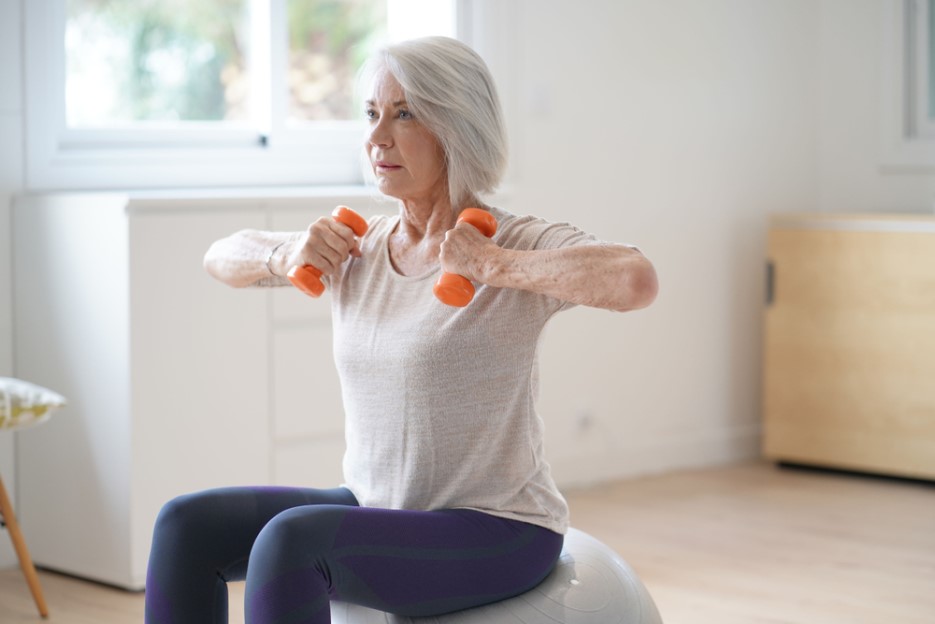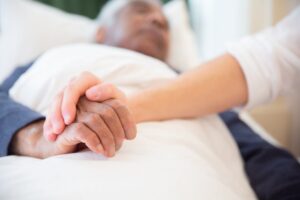With the spread of the novel coronavirus or COVID-19, people are being asked to practice social distancing and to stay at home to help staunch the transmission of the disease. Transmission of COVID-19 happens person to person and, therefore, it’s essential that we practice social distancing and isolation especially for those who are elderly or have compromised immune systems. This means staying home as much as possible, avoiding crowded areas or public spaces where people might congregate. In respect of this, many restaurants, public events, and public spaces have either closed their doors temporarily or limited access so that folks can remain 6 feet away from one another. Many grocery stores, for example, nowadays only let in a certain amount of people into their establishments in order to help their customers maintain 6 feet distance from others in the store.
It is also extremely important that if your family members start feeling ill, it’s important to practice and encourage social isolation. Many health organizations have said that those who are not exhibiting any symptoms may still carry the COVID-19 virus and therefore can still spread it. For this reason, it’s essential to stay home and practice social isolation even when you or your loved ones don’t feel ill.
Humans are social creatures by nature and seniors and the elderly can find themselves lonely, anxious, or depressed as we continue to practice social isolation. While it’s imperative that we all stay home to help flatten the transmission curve, it’s important to stay active, engage in creative activities, and stay connected with one another while in isolation. Harbor Life Settlements shares some activities to assist seniors in keeping their mind and body engaged while staying connected during isolation.
Indoor Exercise and Easy Ways to Stay Active
Exercise has immense benefits for people of all ages including healthier hearts and can lower the possibility of developing chronic illnesses. Studies have also shown that those who regularly exercise had dementia at a lower rate, about 35%, than their peers who did not regularly exercise. Also equally important, regular exercise helped improve quality of life and helped alleviate symptoms of depression and improve general mood.
During social isolation where seniors are less likely to have face to face time with friends and loved ones, it can be easy to develop anxiety and depression. The importance of exercise to improve mood and alleviate anxiety cannot be overstated. Here are some ways to get regular exercise and stay active during social isolation.
Try a relaxing yoga session
Yoga has many documented benefits and is also one of the best forms of exercise for seniors. Over time, yoga can help strengthen bones that have become brittle and weak over time due to osteoporosis. In addition to stronger bones, yoga also helps enhance strength, balance, and flexibility. An improvement in all three can help prevent falls which are the leading cause of injury among seniors. Practicing yoga over time can help improve mobility and avoid falls like these in the future.
In addition to physical benefits, yoga also helps reduce stress and reduce the risk for depression. Yoga helps relieve tension in muscles that may lead to hypertension. Stress also has the harmful effect of lowering normal immune function. Practicing yoga can help lower stress levels and anxiety and helps lower heart rate and blood pressure.
Take a (socially distant) walk outdoors
Even though we are keeping social distance and giving others a wide berth when we do see other people, taking a walk outdoors still provides many benefits for seniors. Walking is one of the easiest ways to stay active during the COVID-19 pandemic and we don’t need to buy any fancy equipment to enjoy its benefits. Walking has been shown to increase cardiovascular and pulmonary function, reduce the risk of heart disease and stroke, help improve management of chronic diseases such as diabetes and high blood pressure.
Walking is a fantastic physical activity for seniors as it is low impact and can be done at your own pace. To enjoy the health benefits of walking, try to take a brisk walk 30 minutes a day.
Creative Outlets and Hobbies
When we think about activities to improve our health and wellbeing, we generally think of exercise and healthy eating. While these activities are extremely important, especially for seniors, creative outlets and expression also have a plethora of benefits. Creative outlets have a profound effect on our overall emotional and psychological wellbeing. While practicing social distancing, it’s important for seniors to engage in hobbies or creative activities to help elevate mood, reduce stress, improve brain function, and reduce risk for disease.
Here are some great hobbies and creative activities seniors can participate in during social isolation.
Get into a good book
Now is the perfect time for seniors to work through that reading list! Reading has been shown to help improve memory for seniors and for aging folks as it exercises short-term memory recall function and allows the mind to be more receptive to learning. As such, reading is a great way to keep the mind active and delay the onset of Alzheimers and dementia.
Reading also does a fantastic job of helping seniors reduce stress and lower blood pressure. The news cycle can be hard to watch or read about these days when the global community is battling the coronavirus epidemic and as such, it’s imperative that we step away. Reading fiction and diving into a good book helps seniors unwind and helps lower heart rate and relieve muscle tension.
To help seniors feel less isolated, they can also create or participate in virtual book clubs! With virtual book clubs, instead of meeting up together to discuss the book, seniors can host video chat meetings with one another to discuss the book they’ve read. Not only will seniors have the benefit of engaging with a good book, they can maintain social contact with friends and family as well!
Try your hand at gardening
There are many fantastic benefits to gardening including boosting emotional and mental health. Best of all, whether seniors live alone in apartments or houses or in assisted living facilities, gardening helps keep the body active and helps reduce stress. Planting seeds, watering plants, and pulling weeds is a great way to keep the body moving and increase eye-hand coordination.
In addition to helping strengthen the body, gardening as a hobby and creative outlet also helps to reduce anxiety and stress. Studies have found that gardening can help reduce cortisol which can relieve stress and reduce high blood pressure. Gardening also boosts serotonin in the brain which can help seniors feel more calm and at peace.
For seniors who live in apartments, assisted living communities, or do not have a yard in their home to plant in, indoor gardening is also a hobby that many seniors are trying their hand at. Some of these include growing and caring for succulent plants, growing and cultivating plants indoors with artificial lighting, or trying their hand in working with hydroponics, plants that do not grow in traditional soil.
Staying Connected During Isolation
Most importantly, even when we’re all practicing social distancing and isolating ourselves in our homes, it’s still crucial to foster connection during this time. As people get older, the need for community, company, and support is not something that diminishes. Loneliness and depression that comes from prolonged social isolation are serious health issues. Humans are social by nature and social relationships and contact helps reduce the risk for depression and alleviates anxiety, help maintain self esteem, and lead to a longer lifespan.
As we all are continuing to be socially distant in our homes to help reduce the spread of COVID-19, it’s important we still stay connected to and keep up with our friends and family. Here are some ways to stay connected with our loved ones while socially isolating.
Video chat with friends and family
While we can’t physically be near one another during this time, video chatting is the next best thing to face to face interaction. Online communication is great for seniors who live far apart from their friends and family or for those who live in assisted living communities and may not have the luxury to have those close to them visit. Unlike phone conversations, video chatting lets seniors see and hear each other at the same time and allow for much nonverbal communication that can be lost with voice only calls.
With the advancement of technology, this can be an easy thing to accomplish. Most smartphones, tablets, and laptops these days have a built in camera that makes video chatting a breeze. Seeing someone’s face and smiles can also help improve mood and overall prevent depression and feeling of isolation and loneliness.
While technology cannot replace face to face time, while we are living in uncertain times and doing all we can to decrease COVID-19 transmission, video chatting is a fantastic way to keep in touch with loved ones.
Try an old fashioned letter
In terms of staying in touch with our community and our loved ones, it’s easy to overlook a simple hand written note. It is a very special and personal thing to receive a letter that someone sat down and put time and consideration into. For many, it’s much more meaningful and special than firing off a text message.
Writing letters is something concrete the receiver can hold on to. It’s something tangible they can hold in their hands and be something memorable to communicate that you’re thinking about that person. Writing and receiving letters can also help improve your mood as writing a letter allows you to pause, slow down, and write down your thoughts for the other person to read.
Additionally, it’s a wonderful surprise for the recipient. Sending handwritten notes is no longer a norm in our society. Therefore, receiving one is a welcome and cherished surprise. As we are all sheltering in our homes, writing and sending a handwritten letter can be a fantastic way to stay in contact with loved ones and let them know we are thinking of them.
During this time of great uncertainty, it’s very important for all of us to do our part and keep ourselves socially distant so that we can help reduce the amount of COVID-19 transmission. If you have any loved ones who are unfortunately battling with this illness, know that you are not alone. For additional tips and resources during isolation, check out our comprehensive resource guide for seniors.









